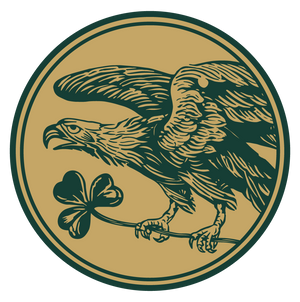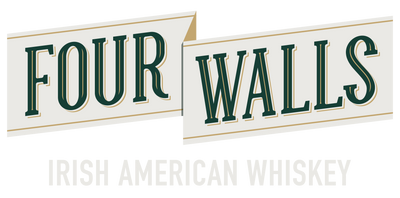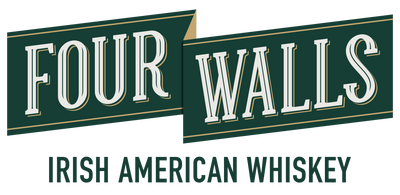The American Bar and its Role in the Gay Rights Movement: Part 2

In 1934, Seattle native Joseph Bellotti decided to open a saloon on 2nd Avenue, just a stone’s throw from Pioneer Square and the waterfront. Bellotti was a sober, honest guy who had come by the two-story building and, with the fall of prohibition, saw an opportunity to make some money off the sailors, fishermen, and prospectors frequenting the area.
Downtown Seattle was a fun place in those years. Filled with brothels, bars, and other dens of ill-repute, it was a gathering place for a rough but colorful crowd of people. The term “Skid Row” actually comes from this area of Seattle and came to be associated with the types of indecent entertainment and activities common to most red-light districts.
Bellotti named his saloon the Double Header. The name came from the fact that there were two entrances to the joint instead of just one. There were also two floors in the bar – the ground floor and the basement, where couples could dance to the scratched-out sounds of an old jukebox.
No one’s quite sure how it happened, but eventually, the Double Header started attracting a crowd of gay patrons. Seattle, while more tolerant than other cities in the US, still had laws against homosexuality, and so police frequently raided bars where the LGBTQ crowd was known to patronize. Unlike most other bar owners, Bellotti not only welcomed the crowd of same-sex couples but also paid off the police to have them left alone. The money came out of his pocket, and he never gouged his customers for reimbursement, something else that set him apart.

interior of The Double Header
Flash forward to 1960, just seven years after US President Eisenhower outlawed Americans that identified as homosexual from working for the Federal government, the Caliph opened its doors in San Diego. Less of a party space and more of a piano lounge-come-neighborhood-bar kind of place, the Caliph quickly became the safe haven for the LGBTQ population of Hillcrest and beyond. It welcomed all, giving each a quiet, secure place to be with friends or to simply be by themselves.
If you were to walk into the Caliph, you wouldn’t know it catered mostly to a gay crowd, which perhaps was the point. It was simply a bar, but a bar that didn’t judge the people drinking there. It welcomed the diversity of the city and quickly became the place for gay and lesbian couples to unwind at the end of the day, listen to live music and drink a good cocktail.
But despite the welcoming atmosphere, things were still tense. Outside the doors of the Caliph, or the Double Header up the coast, or indeed, outside of any gay bar in any city in the country, the patrons were still being hassled, still being judged, still being victimized. It was still illegal to be gay and often still illegal to serve LGBTQ customers. But, all that was about to change, and it would happen because of events in yet another bar on the opposite side of the country, in New York City.

The building occupying 51-53 Christopher Street in Greenwich Village had been many things in its day – horse stables, a bakery, a speakeasy, and a restaurant (called the Stonewall Inn). Then, in 1967, a group of gangsters associated with the Genovese crime family bought the building to open a gay bar. They kept the old restaurant’s sign but painted over the windows, reinforced the door, and remodeled the interior. Because it was illegal to serve members of the LGBTQ population, they opened the Stonewall as a private club, charging a modest admission and then overcharging for watered-down drinks at the bar.
While only in business to stuff the pockets of the mob, the Stonewall Inn was still a popular destination. With dancing and a barely lit interior, the crowd was mostly left alone by both the city’s residents and its police. The mobsters made sure to pay off the local cops, and if raids did occur, the gangsters were warned well in advance.
Ultimately, there really wasn’t that much difference between the Stonewall Inn and any other gay bar in America. While the Double Header wasn’t owned by mobsters, and while the drinks at the Caliph weren’t watered down or overpriced, much of their stories were still alike. All of them catered to a crowd welcome nowhere else in those days. All of them were taking a risk by serving this crowd, a population of people who were themselves deemed illegal. And all of them were regularly hassled by authorities.
And at the same time, all of them allowed a marginalized group of people to be themselves, at least for a little while. They all provided a place of safety and comfort where this group was welcomed and appreciated.
But then, in the middle of 1969, everything changed. In a surprise to everyone, the New York Police Department raided the Stonewall early in the morning of June 28. While waiting for the wagons to transport people to jail, a scuffle broke out between one of the patrons and the police officer arresting her. Then there was another scuffle between patrons and the police and then another. The customers, it seemed, had enough of the hassle. The resulting riots lasted until later that morning, and that was followed by demonstrations in the street the next day and then the next. More riots took place on July 2 and 3 before the police finally got "order" restored.

It was one of the first times that this group of marginalized, abused, and exploited people fought back en masse against the police, and it was inspiring. The next year, on June 28th, the first Gay Pride parade was held in New York City in commemoration of the 1969 Stonewall Inn Riots. A parade has been held every year since.
The impact of what happened in that bar can’t be overstated—it was a watershed moment in American history, the founding of the gay rights movement, and the origin of Pride Month.
Throughout history, bars have always been safe spaces, places where people can go for security, camaraderie, and comfort. For some populations, like the LGBTQ population, this was especially important. The legacy of not only the Stonewall Inn but all those gay bars that opened their doors and welcomed the unwelcome should never be forgotten. They represent what we all want in life and what we all need in our neighborhoods.
- Tags: Bars Sorry We're Closed



